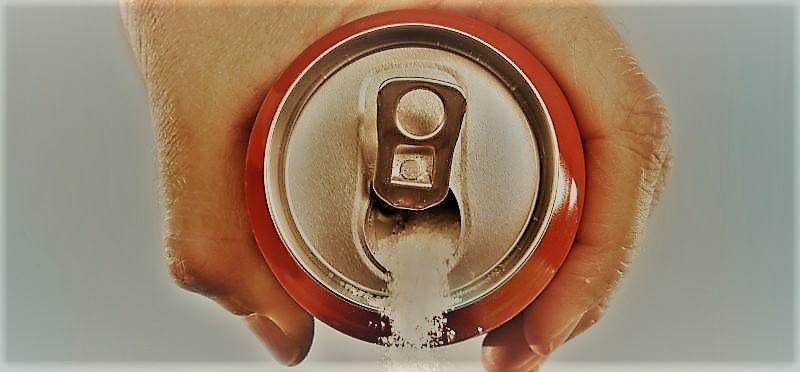(Philadelphia, PA)– As City of Philadelphia announced the opening of registration for the Philadelphia Beverage Tax, and officially kicked off a comprehensive outreach program to provide sweetened beverage distributors and dealers with information to help them comply with the new soda tax requirements.
Beginning on January 1, 2017, the city will start a 1.5-cents-per-ounce tax on the distribution of sweetened beverages as well as syrups and concentrates used to make sweetened beverages. Distributors are required to register by December 31, 2016. The distribution of sweetened beverages in Philadelphia will be subject to the tax. Registration before the January 1, 2017 effective date is required both for distributors and for those dealers who do not purchase from registered distributors.
The law passed on June 20, 2016, the Philly Bev Tax will generate projected revenues of nearly $410 million over the next five years, funds which will be used to fund much-needed investments in pre-K schooling, community schools, recreation centers, libraries, and parks.
“First and foremost, this tax is about empowering our city to move full speed ahead toward a better Philadelphia,” said Mayor Jim Kenney. “The revenue from the Philly Bev Tax will help us tackle these debilitating issues head-on. By implementing this tax and focusing funds on schooling, recreation centers, parks, and libraries, we open a world of possibilities up to our children, and we give them the head start as well as the foundations for growth that can take them down the path to bright futures.”
The city’s outreach campaign focuses on educating both distributors of sweetened beverages and dealers — retailers, restaurants, vending machine owners, schools, hospitals, etc. — that sell sweetened beverages to consumers at the retail level.
From dozens of street teams going “door to door” to dealers, to informational meetings and presentations, to distributor- and dealer-specific toolkits as well as a multilingual website that offers extensive audience-specific information and resources, the city has developed an outreach strategy that provides answers to all affected taxpayers
“We need to reach not only the distributors but also the thousands dealers in Philadelphia that they distribute to,” said Frank Breslin, Revenue Commissioner for the City of Philadelphia. “We know that businesses want to comply and we are giving them the information and tools to do so, whether it is distributors that need to register or dealers looking for a registered distributor.”
Distributor registration is now open at PhillyBevTax.com.
What Qualifies as a Sweetened Beverage?
- Any nonalcoholic beverage, syrup, or other concentrate that is used to prepare a beverage and that lists any of the following as an ingredient:
- Any form of caloric sugar-based sweetener, including but not limited to sucrose, glucose, and high-fructose corn syrup.
- Any form of sugar substitute, including stevia, aspartame, sucralose, neotame, acesulfame potassium (Ace-K), saccharin, and advantame.
- Examples include regular and diet sodas, non-100-percent-fruit drinks, sports and energy drinks, sweetened waters, presweetened coffees and teas, and nonalcoholic beverages intended to be mixed into alcoholic drinks.
- Beverages exempt from the tax include baby formulas; medical foods; products that are more than 50 percent milk; any product that, by volume, is more than 50 percent fresh fruit or vegetables (or a combination of the two) at the time of retail sale, like smoothies.
Philly Bev Tax Key Dates and Facts:
- November 18, 2016: Philadelphia Beverage Tax Registration opens at PhillyBevTax.com
- December 31, 2016: Registration deadline for distributors as well as dealers choosing not to buy from a registered distributor.
- January 1, 2017: Distribution of sweetened beverages on or after this day are taxable.
- February 20, 2017: First Philly Bev Tax payment due, for January 2017. Tax will be due the 20th of each month for the prior month.
- Tax amount: 1.5-cents-per-ounce tax on the distribution of sweetened beverages.
- Tax for syrups and concentrates will be determined on the amount of the finished product based on manufacturer instructions.
- Primary responsibility: This belongs to the distributor. However, if a dealer buys from a nonregistered distributor, the dealer will be responsible for paying the tax.
- PhillyBevTax.com offers:
- Information for distributors, dealers, consumers, and tax-preparation professionals
- Access to online tax registration
- List of registered distributors
- Order form for dealers to obtain collateral and educational materials for their customers
- Outline of where the tax money goes
Also See...
- Philly's Mayor Kenney Wants Tax on Sugary Drinks to Fund Universal Pre-K
- Derek's Restaurant Closes in Manayunk Over Serious Tax Violations
- Philly's Rivers Casino Casinos Massive Expansion
- 3 Sugar Free Drink Solutions For Diabetics
- Mayor Kenney Statement on Philly's Jeweler’s Row Project
- Travel & Leisure Names Philadelphia as a Top Travel Destination


